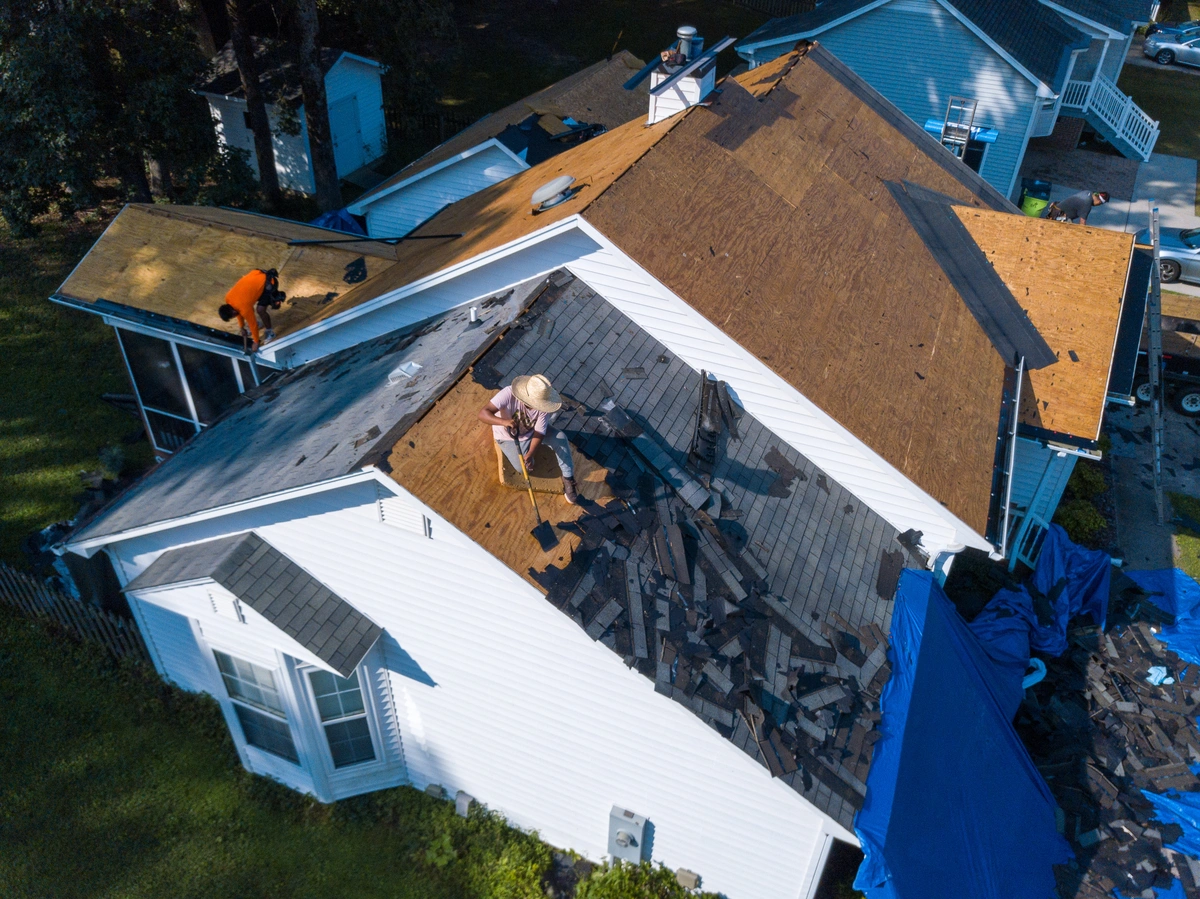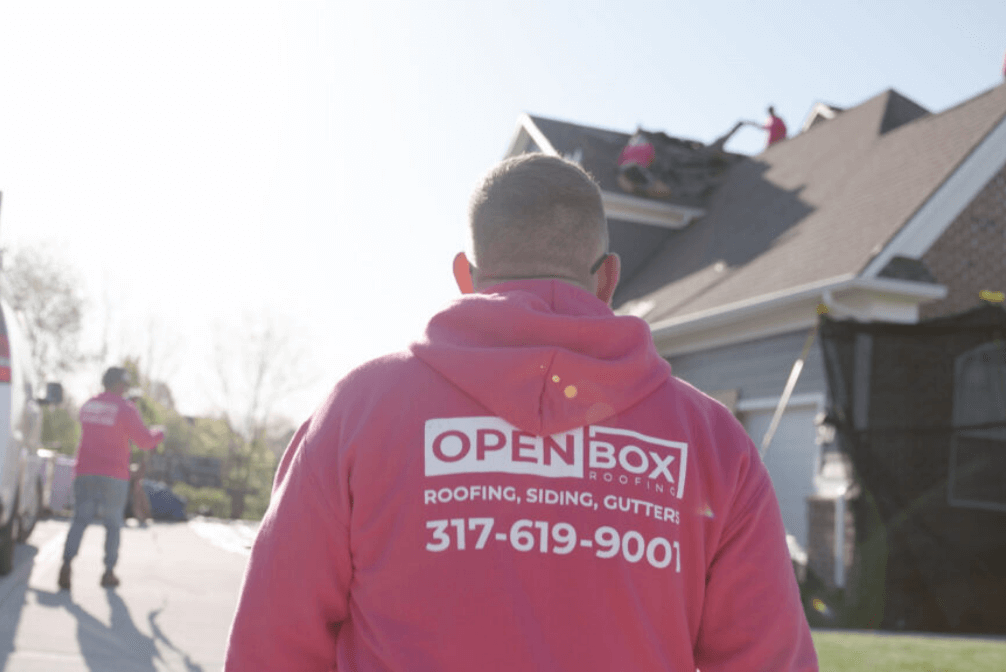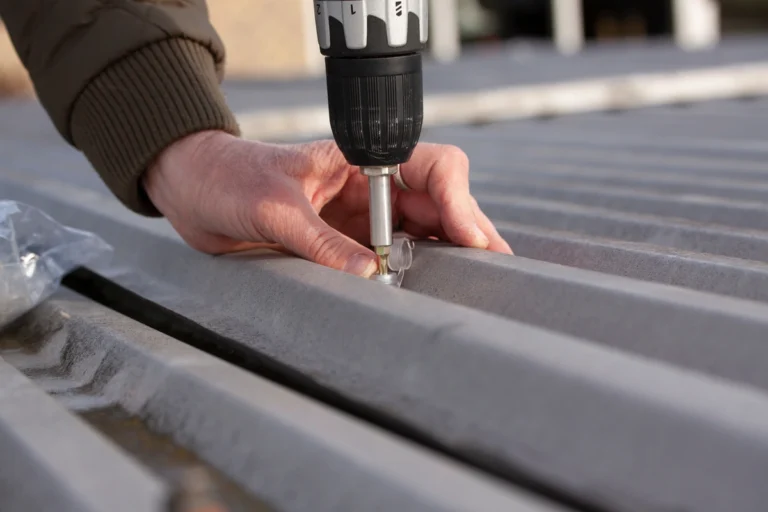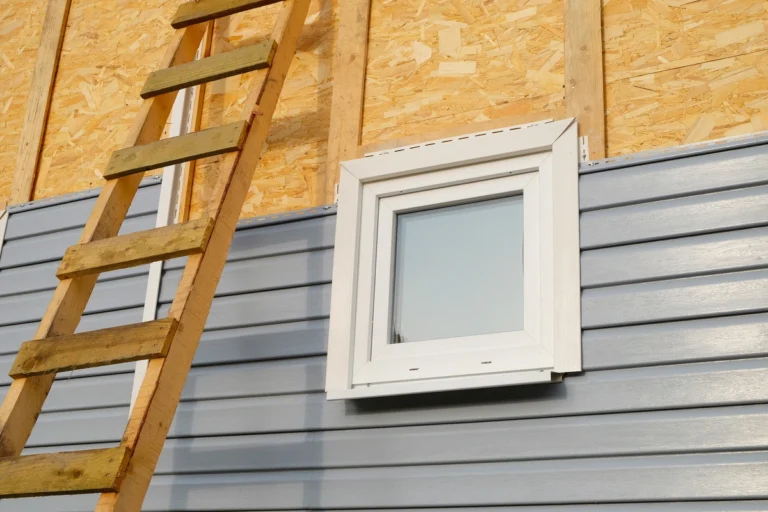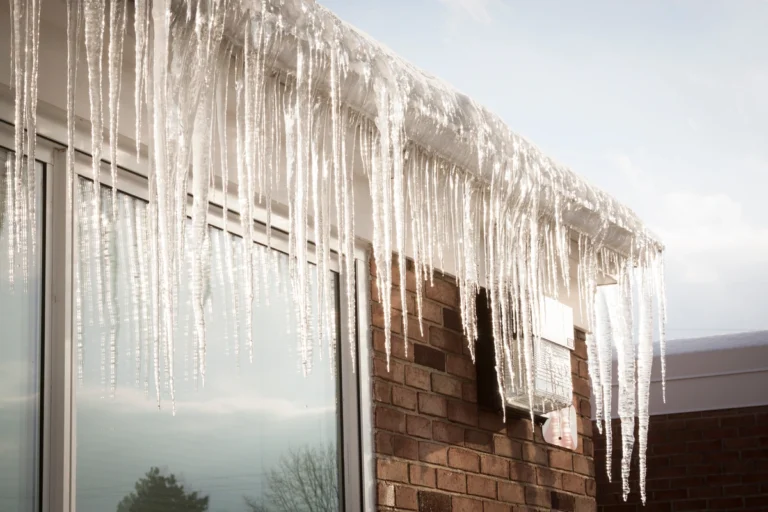Roof replacement is a significant undertaking for any homeowner. It’s not only a matter of maintaining the structural integrity of your house but also ensuring the safety and comfort of those living within it.
One common question that arises during this process is whether homeowners should stay home or find temporary accommodation elsewhere. In this expert guide, we’ll delve into the various aspects of roof replacement to help you make an informed decision. We’ll cover everything from:
- Knowing when it’s time for a roof replacement
- Finding the right contractor
- Understanding the steps involved in the process.
Stop Googling “should I stay home during roof replacement” and get the answers you need, below!
When to Replace Your Roof
The decision to replace your roof shouldn’t be taken lightly. Several signs indicate that it’s time for a replacement rather than just repairs. These signs include:
- Age: Most roofs have a lifespan of 20-25 years. If your roof is nearing or past this age, it’s likely due for a replacement, even if it appears to be in decent condition.
- Visible Damage: Look for signs of shingles curling, cracking, or missing granules. Also, check for mold, moss, or algae growth, as these indicate underlying issues.
- Leaks: Persistent leaks, especially after heavy rain or snow, suggest that your roof’s integrity has been compromised and requires immediate attention.
- Sagging: A sagging roof deck or noticeable dips in the roofline are serious issues that require prompt replacement to prevent further structural damage.
- Energy Efficiency: An old or damaged roof can result in poor insulation and higher energy bills. If you notice a significant increase in heating or cooling costs, it might be time to replace your roof.
7 Steps During the Roof Replacement Process
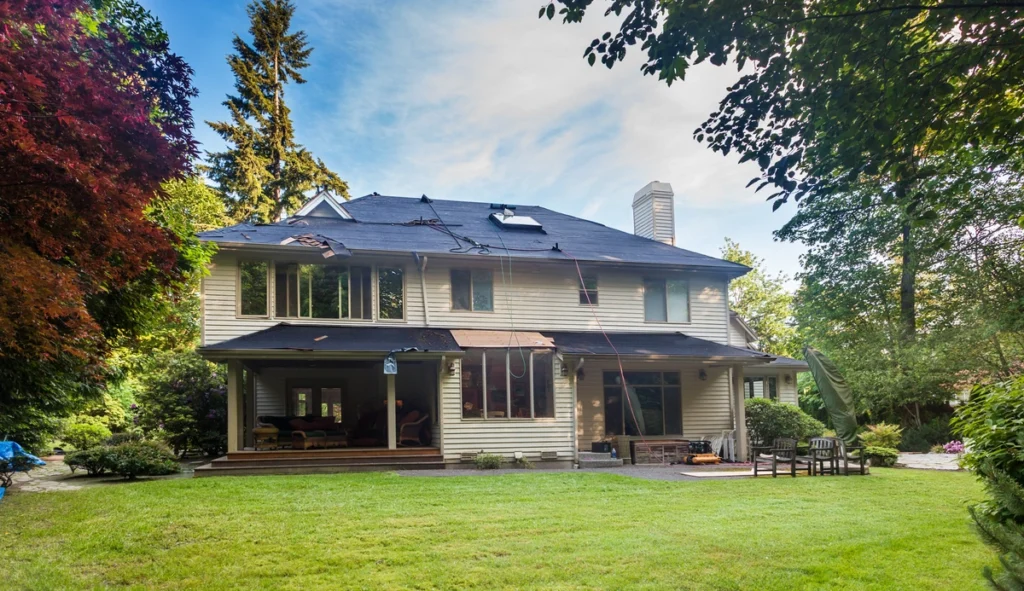
Once you’ve decided to replace your roof, understanding the steps involved can help alleviate some of the uncertainty surrounding the process. Here’s a breakdown of what to expect:
1) Inspection and Assessment:
A reputable roofing contractor will conduct a thorough inspection of your roof to assess its condition and determine the extent of the replacement needed.
2) Material Selection:
Work with your contractor to choose the right roofing material for your home, considering factors such as durability, aesthetics, and budget.
3) Permitting:
Depending on local regulations, you may need permits for the roof replacement project. Your contractor should handle this process on your behalf.
4) Removal of Old Roofing:
The existing roofing materials, including shingles, underlayment, and flashing, will be removed to prepare the surface for the new roof.
5) Repairs and Preparation:
Any damaged decking or underlying structure will be repaired or replaced. The roof will then be inspected to ensure it’s ready for the new materials.
6) Installation of New Roofing:
The chosen roofing material, whether asphalt shingles, metal panels, or tiles, will be installed according to manufacturer specifications and industry best practices.
7) Cleanup and Inspection:
Once the new roof is in place, the area will be thoroughly cleaned of debris, and a final inspection will be conducted to ensure quality and compliance.
How Long A Roof Replacement Takes
The duration of a roof replacement project depends on various factors, including the size and complexity of your roof, weather conditions, and the efficiency of the roofing crew. On average, a typical residential roof replacement can take anywhere from a few days to a week to complete. However, unforeseen complications or delays, such as inclement weather or additional repairs, can extend the timeline.
Should You Stay Home During the Replacement?

Deciding whether to stay home during a roof replacement is a personal choice that depends on several factors:
- Safety: While reputable roofing contractors take measures to ensure safety during the replacement process, there are inherent risks associated with having workers on your roof. If you have young children or pets, staying elsewhere might be a safer option.
- Noise and Disruption: Roof replacement involves loud noises, such as hammering and machinery, which can be disruptive to daily life. If you work from home or have sensitive individuals in your household, staying elsewhere might provide a quieter environment.
- Comfort and Convenience: Living in a home undergoing roof replacement can be inconvenient, especially if access to certain areas is restricted or if there are interruptions to utilities. Staying elsewhere can offer greater comfort and convenience during this time.
- Supervision and Peace of Mind: Some homeowners prefer to stay home during the replacement process to supervise the work and address any concerns promptly. Being present can also provide peace of mind knowing that the project is progressing as planned.
Ultimately, the decision to stay home or find alternative accommodation during a roof replacement depends on your individual circumstances and preferences. It’s essential to weigh the pros and cons carefully and communicate openly with your roofing contractor to ensure a smooth and satisfactory experience.
How to Find a Great Roofing Contractor
Choosing the right roofing contractor is crucial to the success of your roof replacement project. Here are some tips for finding a reputable and reliable contractor:
Research and References:
Start by researching local roofing companies and reading reviews from past customers. Ask friends, family, and neighbors for recommendations based on their experiences.
Licensing and Insurance:
Verify that the contractor is properly licensed and insured to perform roofing work in your area. This protects you from liability in case of accidents or property damage during the project.
Experience and Expertise:
Look for contractors with a proven track record of successful roof replacements and extensive experience working with your chosen roofing material.
Written Estimates:
Obtain detailed written estimates from multiple contractors, outlining the scope of work, materials, timeline, and cost breakdown. Beware of lowball offers that may indicate subpar quality or hidden fees.
Warranty and Guarantees:
Choose a contractor who offers warranties on both materials and workmanship. This ensures that you’re protected in the event of any defects or issues arising after the project is completed.
Communication and Transparency:
Opt for a contractor who communicates openly and transparently throughout the entire process, addressing any questions or concerns you may have and providing regular updates on the project’s progress.
By following these guidelines and conducting thorough research, you can find a reputable roofing contractor who will deliver high-quality workmanship and peace of mind during your roof replacement project.
Get Your Roof Replaced By An Expert
Roof replacement is a significant investment in your home’s longevity and safety. Whether you choose to stay home during the process or seek alternative accommodation, thorough preparation and communication with your roofing contractor are key to a successful outcome. By understanding the signs that indicate it’s time for a replacement, familiarizing yourself with the steps involved, and finding a trustworthy contractor, you can navigate the roof replacement process with confidence and peace of mind.
Contact Open Box Roofing to learn more about our roof replacement services.
